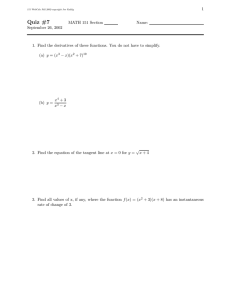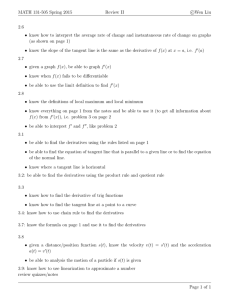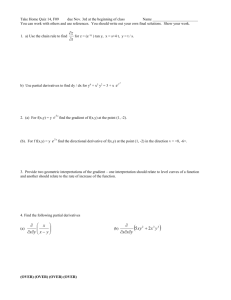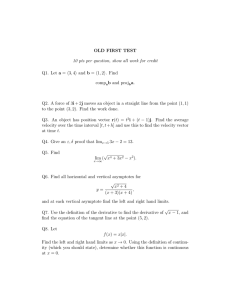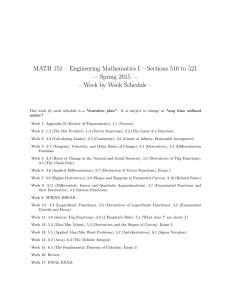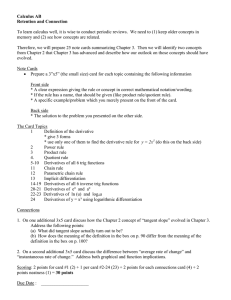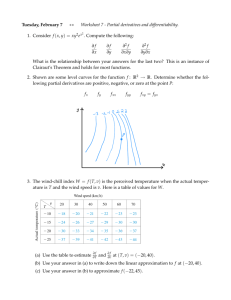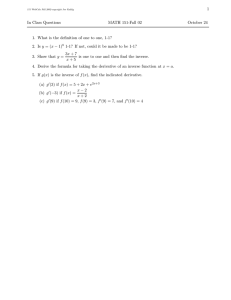These are the sections and topics from Stewart that curves functions
advertisement
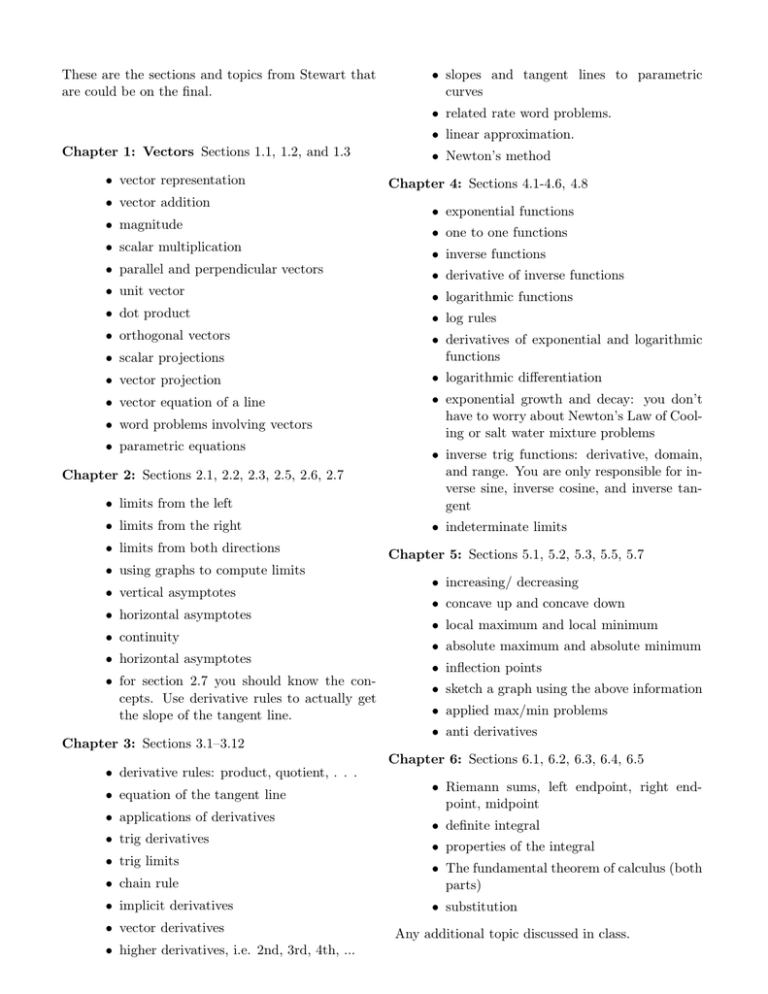
These are the sections and topics from Stewart that are could be on the final. • slopes and tangent lines to parametric curves • related rate word problems. Chapter 1: Vectors Sections 1.1, 1.2, and 1.3 • vector representation • vector addition • magnitude • scalar multiplication • parallel and perpendicular vectors • unit vector • dot product • orthogonal vectors • linear approximation. • Newton’s method Chapter 4: Sections 4.1-4.6, 4.8 • exponential functions • one to one functions • inverse functions • derivative of inverse functions • logarithmic functions • log rules • scalar projections • derivatives of exponential and logarithmic functions • vector projection • logarithmic differentiation • vector equation of a line • exponential growth and decay: you don’t have to worry about Newton’s Law of Cooling or salt water mixture problems • word problems involving vectors • parametric equations • limits from the left • inverse trig functions: derivative, domain, and range. You are only responsible for inverse sine, inverse cosine, and inverse tangent • limits from the right • indeterminate limits Chapter 2: Sections 2.1, 2.2, 2.3, 2.5, 2.6, 2.7 • limits from both directions • using graphs to compute limits • vertical asymptotes • horizontal asymptotes • continuity • horizontal asymptotes • for section 2.7 you should know the concepts. Use derivative rules to actually get the slope of the tangent line. Chapter 3: Sections 3.1–3.12 • derivative rules: product, quotient, . . . • equation of the tangent line • applications of derivatives • trig derivatives • trig limits Chapter 5: Sections 5.1, 5.2, 5.3, 5.5, 5.7 • increasing/ decreasing • concave up and concave down • local maximum and local minimum • absolute maximum and absolute minimum • inflection points • sketch a graph using the above information • applied max/min problems • anti derivatives Chapter 6: Sections 6.1, 6.2, 6.3, 6.4, 6.5 • Riemann sums, left endpoint, right endpoint, midpoint • definite integral • properties of the integral • chain rule • The fundamental theorem of calculus (both parts) • implicit derivatives • substitution • vector derivatives • higher derivatives, i.e. 2nd, 3rd, 4th, ... Any additional topic discussed in class.
